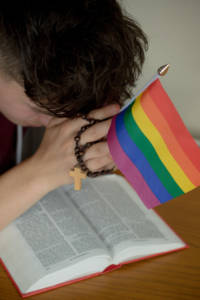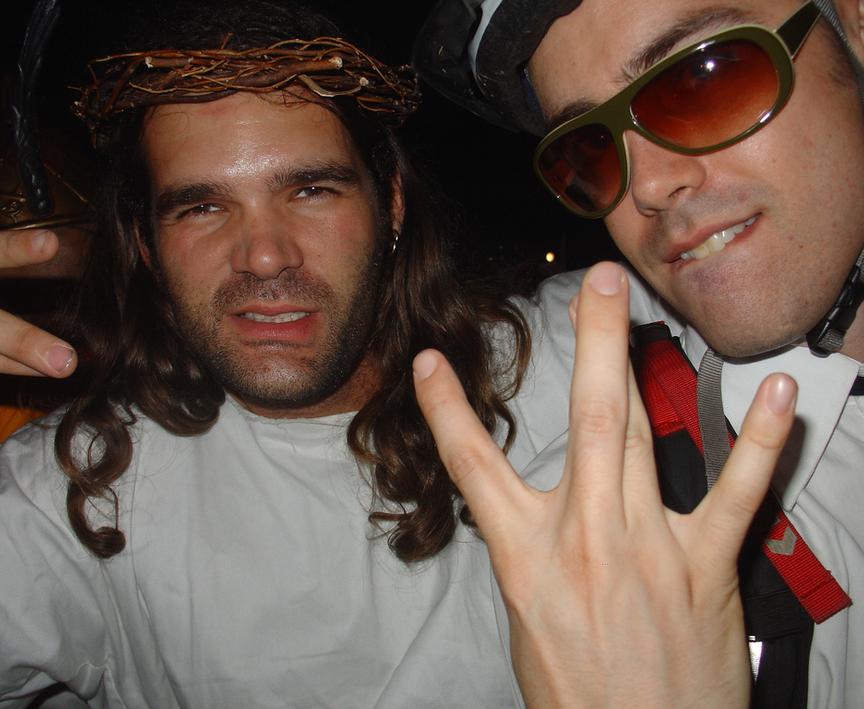
If you’re an LGBTQ Christian, finding a church to welcome you may be tough, but fortunately there are many churches in Canada that embrace this community.
For queer and transgender Canadians who embrace Christianity, it can sometimes be difficult to find an accepting or affirming community of faith. While fundamentalist evangelical culture has greater widespread impacts south of the border, those in other denominations occasionally struggle with religious authorities and doctrines that brand their existences as contrary to divine will. Fortunately, several Christian organizations openly welcome and affirm LGBTQ individuals, with many local and national branches and congregations located throughout Canada.
Metropolitan Community Churches
Based in the United States, the original Metropolitan Community Church was specifically founded by and for LGBTQ Christians. The MCC traces its genesis back to 1968 when Reverend Elder Troy Perry, a former Pentecostal priest defrocked for being gay, placed an advertisement in The Advocate announcing the beginning of LGBTQ-welcoming worship services. The MCC’s website explains that after his depression and attempted suicide, Perry was convinced he’d never lead a congregation again. Nevertheless, a friend changed his mind when she insisted God had plans for his future that centered around a new Christian ministry.
The first services were held with 12 attendees in Perry’s living room at his Huntington Park home, but the organization has grown to encompass 300 congregations and more than 43,000 members worldwide. Three of them are in Ontario, with one church each in London, Toronto, and Windsor. The Canadian organization’s legacy includes helping to transform marriage laws. When the Toronto congregation’s pastor started issuing bans of marriage for same-sex couples, these acts eventually led to the favorable marriage equality outcome of Halpern v. Canada in 2003.
United Church of Canada
Near the forefront of Christian groups actively working towards inclusion, the United Church of Canada is known for its more liberal stances on many topics. A denomination in the Reformed Protestant tradition, it was founded in 1925 as the result of several smaller sects merging. Basing its theologies on an interpretation that Jesus welcomed all, its positions on issues such as marriage, inclusion, faith and social justice are decidedly progressive, as documented on the organization’s website.
Amidst some internal strife, the United Church of Canada applied these philosophies to its views on gender and romantic orientation. According to its Gender and Orientation page, the church follows these guidelines:
- Opposes discrimination
- Believes that all are made in God’s image
- Welcomes anyone of any gender or orientation into membership and ministry
Additionally, it hosts several networks and groups specifically for LGBTQ church members and allies, ranging from ones that offer support to those focused on education and advocacy.
Other Christian Denominations
Although some standard Protestant sects have experienced division over the acceptance and affirmation of LGBTQ people in their flocks, they continue to move in more progressive directions. A shortlist of Canadian denominations with nondiscriminatory policies include the following:
- The Evangelical Lutheran Church
- The Anglican Church
- Unitarian Universalism
- Religious Society of Friends (Quakers)
Several independent Catholic religious communities — those that do not recognize the Vatican as their authority — also welcome LGBTQ members. While many of these are in the United States, some local parishes can be found throughout Canada. The GALIP Foundation, a United States nonprofit Christian outreach for queer and transgender individuals, keeps an updated list of affirming congregations. You can use its search feature and drop-down menus to return results by state or province.
Connect With Affirming Houses of Worship
If you’re a queer or transgender Christian, connecting with a congregation where you feel welcome can be challenging. However, resources are available that can help you find what you seek. From LGBTQ-focused religious organizations to mainstream and independent denominations opening their doors to affirm all members regardless of gender or orientation, communities exist where you can enjoy fellowship, find support, and pursue the meaning of your faith in both an individual and collective context.



